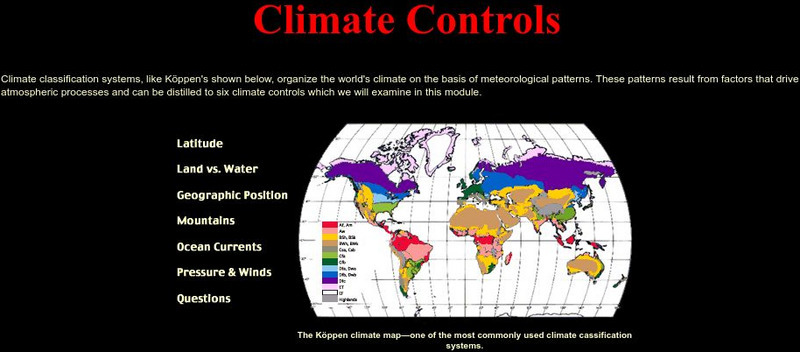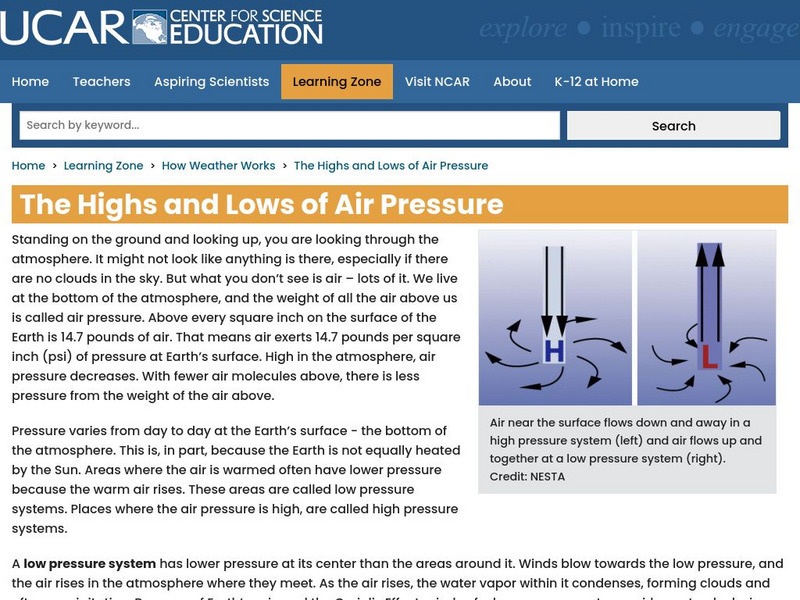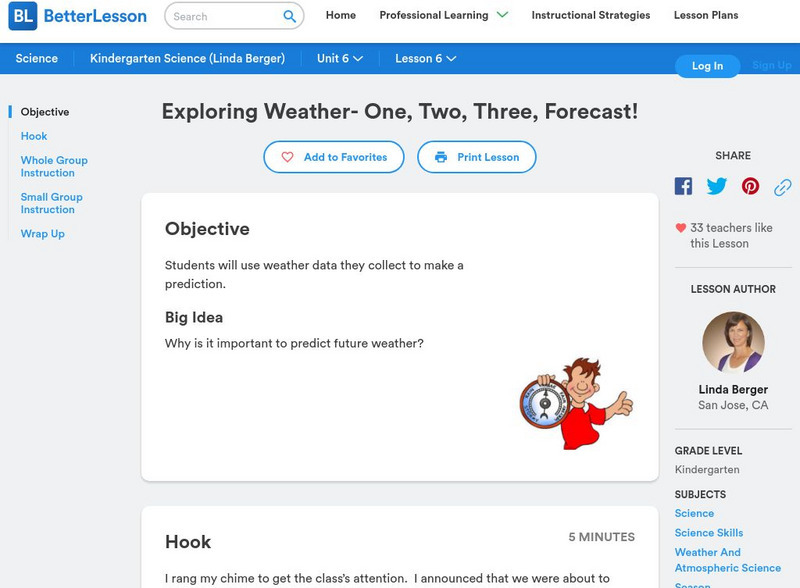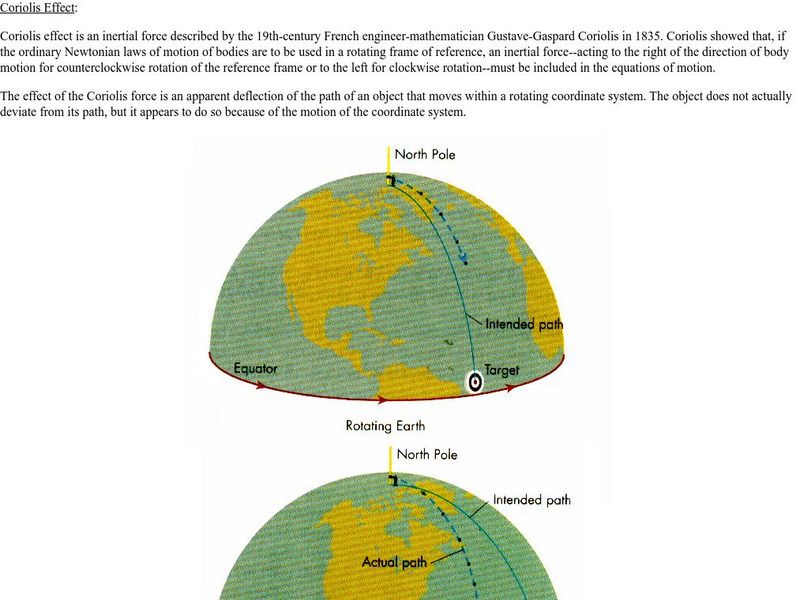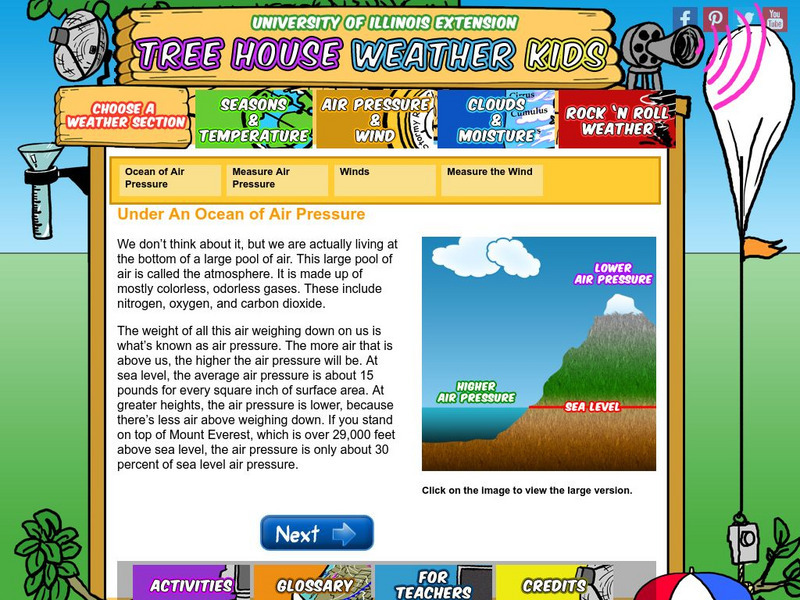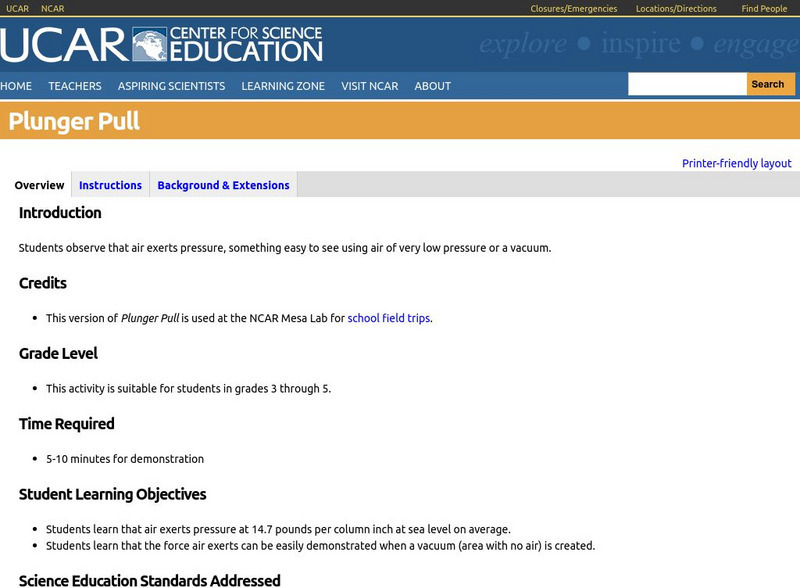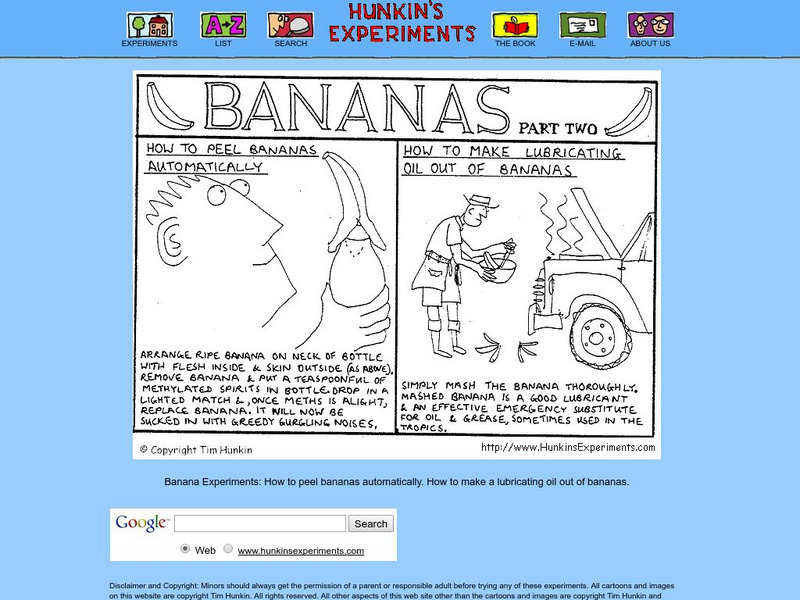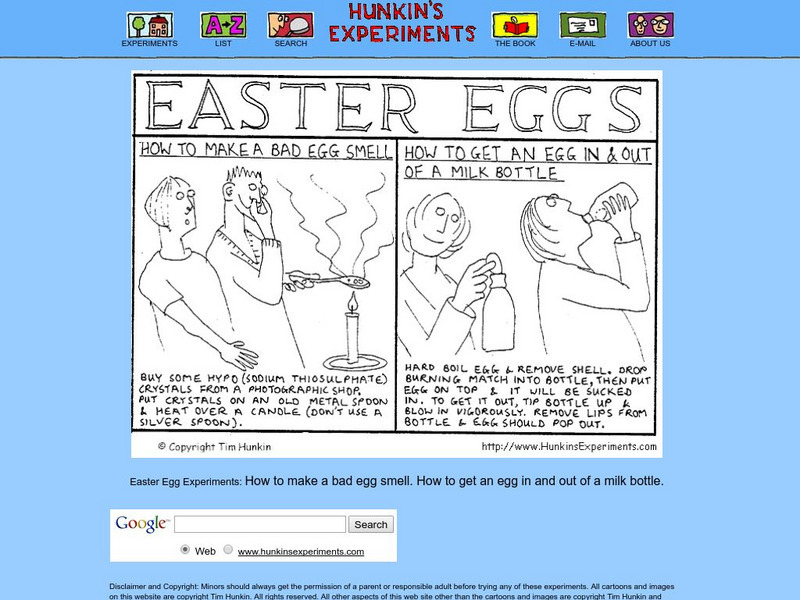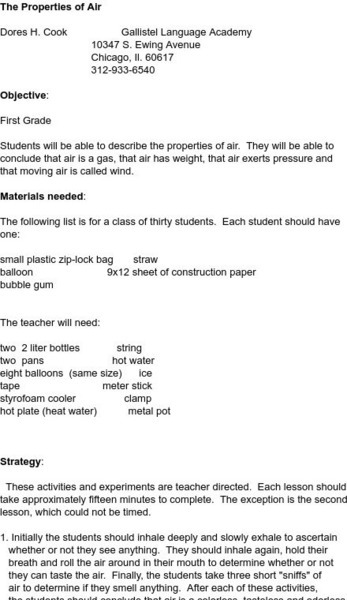Science Struck
Science Struck: Working Principle, Types, Applications of a Manometer
A manometer is used to measure the pressure of a gas or fluid. This article explains the principle behind the working of manometers, the different types, and how they are used. Formulas used to calculate pressure are also given.
Other
Usc: Climate Controls
An effective presentation of six main climate controls: latitude, land vs. water, geographic position, altitude, currents, pressure and winds.
University Corporation for Atmospheric Research
Ucar: Air Pressure
Where air molecules are packed closely, air pressure is high. Where air molecules spread out, air pressure is low.
University Corporation for Atmospheric Research
Ucar: Balloon on a Bottle
In this activity, students brainstorm various ways that an uninflated balloon placed over a bottle's opening can be inflated without touching the balloon.
Better Lesson
Better Lesson: Exploring Weather One, Two, Three, Forecast!
Students will use weather data they collect to predict future weather. Included in this instructional activity are a weather forecasting recording sheet and an example of a student's completed work.
University of St. Andrews (UK)
University of St. Andrews: Climate and Weather Systems
This online lecture covers topics of air pressure, density and temperature.
University of Oregon
University of Oregon: Coriolis Effect
This site from the University of Oregon provides a great explanation of the Coriolis Effect and then gives several chart type examples to help the understanding of it.
University of Illinois
University of Illinois Extension: Under an Ocean of Air Pressure
Read an explanation of air pressure and how it affects the weather. Colorful diagrams are included.
NASA
Nasa: Beginner's Guide to Aerodynamics
Includes exhaustive information and a wealth of activities pertaining to aerodynamics and the physics of flight.
Discovery Education
Discovery Education: Weather Maps
This site provides a lesson plan in which groups of students will each investigate a different type of weather map use for weather forecasting. Also includes discussion questions, extension ideas, and links to additional sites for more...
University Corporation for Atmospheric Research
Ucar: Plunger Pull
Students observe that air exerts pressure, something easy to see using air of very low pressure or a vacuum.
University Corporation for Atmospheric Research
Ucar: Not Your Usual Pop!
Students learn how to crush a can with only air pressure.
University Corporation for Atmospheric Research
Ucar: Clouds in the Air: Why Are They There?
An experiment that demonstrates why there are clouds in the sky. Start with air, invisible water vapor, particles we call condensation nuclei, and air pressure...the cloud comes later!
University Corporation for Atmospheric Research
Ucar: Balloon Inside a Bottle
Air takes up space. It's only when air in the bottle escapes that more air is easily added!
Alabama Learning Exchange
Alex: I'm So Crushed
In this activity, students will have an opportunity to solve a mystery. They will discover why a soda can collapses during a demonstration due to the effects of changes in temperature and atmospheric pressure. Students will gain further...
University Corporation for Atmospheric Research
Ucar: Create a Portable Cloud
In this hands-on activity, students experiment to discover how moisture, pressure, temperature, and condensation nuclei play a role in cloud formation.
University Corporation for Atmospheric Research
Ucar: Change in the Atmosphere With Altitude
How does the atmosphere change as you go up high in the sky?
University Corporation for Atmospheric Research
Ucar: What Is Weather?
Weather is the mix of events that happen each day in our atmosphere. Learn how weather events are controlled by air pressure, how Meteorologists predict the weather and the difference between weather and climate.
University Corporation for Atmospheric Research
Ucar: How Weather Affects Air Quality
How is air pollution affected by weather? Some types of pollution are worse in the summer heat, while others are worse in cold winter weather.
Science Buddies
Science Buddies: Measure the Pressure
Scientists have developed an instrument called a barometer that can measure atmospheric pressure. In this activity, you will find out how a barometer works by building one yourself.
Hunkins Experiments
Hunkin's Experiments: Potato Peel a Banana Automatically
Hunkin's Experiments is a group of simple cartoon illustrations of scientific principles. Some would work well in the classroom, but others have little value beyond entertaining students. All of the projects are easy to do. This one is a...
Hunkins Experiments
Hunkin's Experiments: Get an Egg In/out of a Bottle
Hunkin's Experiments is a group of simple cartoon illustrations of scientific principles. Some would work well in the classroom, but others have little value beyond entertaining students. An easy-to-do example includes using air pressure...
Science and Mathematics Initiative for Learning Enhancement (SMILE)
Smile: The Properties of Air
Lesson plan to teach properties of air. Students use balloons, plastic bottles, plastic bags and a meter stick to conclude that air is a gas that has weight, exerts pressure, and moves.
Science and Mathematics Initiative for Learning Enhancement (SMILE)
Smile: Aspects of Weather
A detailed weather lesson plan written for the primary, intermediate, and junior high level. Topics covered are weather symbols, thermometer, graphing temperature results, clouds, moisture and air pressure.



